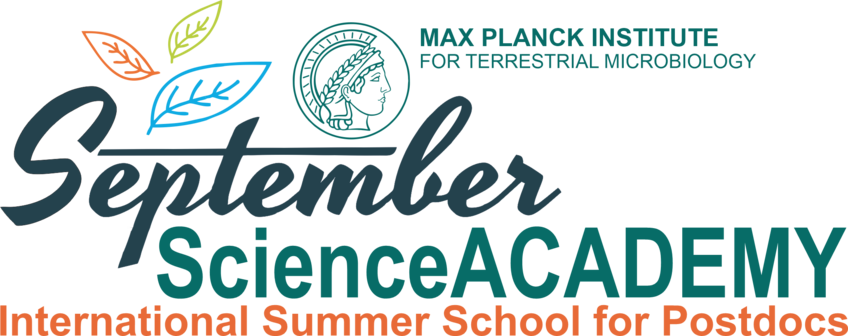
Confirmed speakers
Prof. Dr. Gert Bange is a structural biologist and biochemist at Philipps-Universität Marburg, where he serves as Vice President for Research and holds a professorship in Biochemistry. He is also a Max Planck Fellow at the Max Planck Institute for Terrestrial Microbiology. His research focuses on the molecular mechanisms of microbial adaptation to environmental stresses, utilizing structural biology, systems biology, and cell biology approaches. Prof. Bange's work has significantly advanced the understanding of macromolecular machines, bacterial stress responses, and microbe-host interactions. He has been recognized with numerous awards, including an ERC Advanced Grant, and actively contributes to scientific communities through editorial roles and mentorship programs.
Prof. Dr. Helge B. Bode is Director at the Max Planck Institute for Terrestrial Microbiology in Marburg, Germany, where he leads the Department of Natural Products in Organismic Interactions. His research focuses on the role of microbial natural products in inter-organismal communication and the engineering of non-ribosomal peptide synthetases to create novel bioactive compounds. He has received multiple honors, including ERC Starting, Advanced, and Proof of Concept Grants.
Prof. Dr. Tobias J. Erb is Director at the Max Planck Institute for Terrestrial Microbiology in Marburg, Germany, where he leads the Department of Biochemistry and Synthetic Metabolism. His research focuses on understanding and engineering carbon metabolism with the goal of developing novel synthetic pathways for carbon fixation. Combining tools from biochemistry, synthetic biology, and systems biology, his group explores how microbes can be harnessed or redesigned to address challenges in sustainability and climate change. Tobias Erb is a recipient of numerous awards, including the Gottfried Wilhelm Leibniz Prize and the EMBO Gold Medal.
Dr. Judith Klatt leads the Biogeochemistry Lab at the Microcosm Earth Center, a joint initiative of the Max Planck Institute for Terrestrial Microbiology and Philipps-Universität Marburg. Her interdisciplinary research explores how microbial processes influence elemental cycles in Earth's present and past humid environments. By integrating chemical, geological, and biological perspectives, her team investigates microbial interactions across molecular to ecosystem scales, with a particular focus on CO₂-fixing photosynthetic microorganisms. Dr. Klatt's work has contributed to understanding the links between microbial activity and global biogeochemical processes, including insights into Earth's oxygenation history.
In 2024, Dr. Klatt was awarded a European Research Council (ERC) Starting Grant for her project "RETRO-PUMP," which aims to reconstruct global redox transitions based on an evolving Precambrian biological carbon pump.
Dr. Maren Nattermann leads the research group Synthetic Cofactors and Orthogonal Metabolism at the Max Planck Institute for Terrestrial Microbiology in Marburg. Her work focuses on engineering synthetic metabolic pathways and developing orthogonal cofactor systems to enhance the efficiency and sustainability of microbial production processes. Dr. Nattermann earned her Ph.D. in Biology from Philipps-Universität Marburg in 2023, following her M.Sc. in Biochemistry from Heidelberg University. She has been recognized with awards such as the VAAM Doctoral Prize and the MarBiNa Award for her contributions to synthetic metabolism and CO₂ utilization.
Dr. Nicole Paczia leads the Metabolomics and Small Molecule Mass Spectrometry Core Facility at the Max Planck Institute for Terrestrial Microbiology in Marburg. Her work focuses on developing advanced LC-MS methods for targeted and untargeted metabolite profiling in diverse biological systems. In addition to supporting research in synthetic metabolism, microbial physiology, and natural product discovery, she is actively involved in the development of microfluidic technologies for high-throughput single-cell analysis. She is a co-founder of the HAPPY start-up, which builds on a patented microfluidic platform to screen compounds for effects on cellular aging.
Dr. Martina Preiner leads the Geochemical Protoenzymes research group at the Max Planck Institute for Terrestrial Microbiology in Marburg. Her interdisciplinary research focuses on understanding how life emerged from non-life by exploring the transition from geochemistry to biochemistry. By integrating chemical, biochemical, and geochemical methods, her team investigates how mineral surfaces and organic cofactors could have facilitated early CO₂ fixation and metabolic processes. Dr. Preiner's work aims to bridge the gap between environmental reactions and genetically encoded metabolic functions, providing insights into the origin of life.
Dr. Johannes Rebelein is the leader of the Emmy Noether Research Group Microbial Metalloenzymes at the Max Planck Institute for Terrestrial Microbiology in Marburg. His research focuses on understanding and engineering metalloenzymes, particularly nitrogenases, to convert carbon dioxide (CO₂) into valuable hydrocarbons. By combining structural biology, biochemistry, and synthetic biology, his group aims to develop sustainable biocatalytic processes for carbon capture and utilization. Dr. Rebelein earned his Ph.D. from the University of California, Irvine, and conducted postdoctoral research at the University of Basel. He has been recognized with the 2024 VAAM Research Prize and was selected as an EMBO Young Investigator in 2024.
Prof. Dr. Victor Sourjik is Director at the Max Planck Institute for Terrestrial Microbiology in Marburg, Germany, where he leads the Department of Systems and Synthetic Microbiology. His research aims to understand the organization and dynamics of cellular networks in microorganisms, focusing on how cells sense, process, and respond to environmental signals. Using approaches from systems biology, biophysics, and synthetic biology, his group studies model organisms such as Escherichia coli and yeast. Victor Sourjik has received multiple honors, including an ERC Advanced Grant and election to the European Academy of Microbiology.
Dr. Anke Treuner-Lange is a Project Group Leader in the Department of Ecophysiology at the Max Planck Institute for Terrestrial Microbiology in Marburg. Her research focuses on the structure, function, and regulation of the Type IVa pilus (T4aP) machinery in Myxococcus xanthus, utilizing a combination of genetics, cell biology, biochemistry, and transcriptome and proteome analyses.
Dr. Jing Yuan is a Research Group Leader at the Max Planck Institute for Terrestrial Microbiology in Marburg, Germany. Her research focuses on the roles of small proteins in bacterial signaling networks, particularly their influence on two-component systems like PhoQ/PhoP that regulate virulence in enterobacteria. By integrating molecular biology, synthetic biology, and structural approaches, her team aims to elucidate the mechanisms by which these small proteins modulate bacterial pathogenicity and to explore their potential as targets for novel antimicrobial strategies.